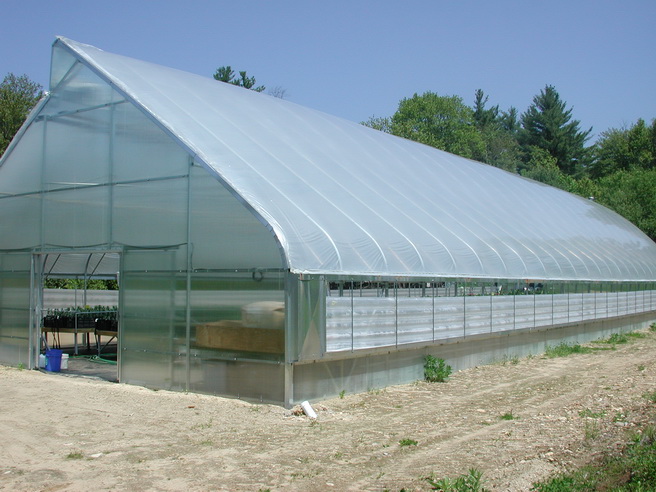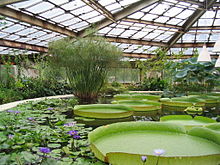Greenhouse Construction Can Be Fun For Anyone
Wiki Article
Not known Details About Greenhouse Construction
Table of ContentsGreenhouse Construction - An OverviewThe Main Principles Of Greenhouse Construction The smart Trick of Greenhouse Construction That Nobody is Discussing5 Easy Facts About Greenhouse Construction DescribedGreenhouse Construction Fundamentals Explained
You can opt for lightweight pass doors or insulated ones. The lighter-weight doors make leaving and entering easy and quick, but they don't offer a lot of protection from the outdoor elements. An insulated door can do a better job of keeping heat inside and cold air out. Insulated doors are a bit larger and can be a bit harder to open and close.
Putting the structure together should be relatively simple, with the greenhouse end wall design process out of the way. One thing to keep in mind is that the construction below is for plain greenhouse end walls. These instructions for building a greenhouse end wall don't accommodate extra parts like fans and gables.

Some Known Details About Greenhouse Construction
You need to repeat this step on the right of your entryway. Take another curved edge piece of wood and place it facing up at the previously marked left point. Make sure the wood lines up with the ground pencil mark and press until the hoop piping slides into the curved edge.You should repeat this step on the right side of the end wall. Once done, the wall should be sturdy and solidly built. There are various types of greenhouse-like structures. Greenhouses and hoop houses, in particular, are very popular (Greenhouse construction). The significant difference is that hoop houses are easier and cheaper to DIY build
When constructing either building, one thing to keep in mind is that the end wall needs to be sturdy. If you need any more greenhouse-related assistance, you can contact us at Farm Plastic Supply.
I do not have a green thumb. The only plants I have any luck with are the ones that can be sawn into boards. My wife has two green thumbs, maybe three. She can grow anything. In our early life together she would, in her shy way, ask me to build helpful garden projects and, in my busy way, I would half pay attention to her requests.
The Best Strategy To Use For Greenhouse Construction
The investment in such a project is considerable, and building it as a separate structure is the conventional way to go. this hyperlink However, we decided to make it an integral part of our home after researching the advantages of an attached greenhouse. We built ours 50 feet long and 9 feet wide, 450 square feet in area and about 3,000 cubic feet in volume.There are three doors, one into our house and one on each end wall. Screened vents and lots of glass make up the south-facing blog wall. It has lived up to our expectations. In fact it has an extra advantage. Guests love it. My wife, Jen, can entertain them for hours out there if they are fellow green thumbers.
Ours is a solar greenhouse, and we live in the north country. Even so, the only slow growing time is from late December to early March when even cool weather crops sometimes need to be covered. On a frigid but sunny day the greenhouse warms up and the plants are happy.
In late fall Jen brings some garden plants back in to extend their production time. All summer the greenhouse produces vegetablessome that normally grow in a much warmer climate and others I’m not sure grow anywhere else on this planet. Jen is really good. Plus she grows flowers and herbs with names I can’t pronounce.
All about Greenhouse Construction
Foundation wall rises above ground and house wall has been stripped to the sheathing. Note the large area of the house foundation that will be painted green for solar gain. From my perspective as a builder there was another very important benefit for adding this addition to the house. It is a serious source of heat for our home.Opening the connecting door lets heat pour into the house for hours. How much heat? We have a 3000 square foot house. We heat it with four or five cords of wood, which covers about half our heating requirement for the year. The greenhouse, with help from the windows above it, supplies the rest.
That is a saving for us of $1000 to $1250 this winter. In addition to food and heat, the quality of air in our house is healthier. If you know about the good effect a dozen house plants using up carbon dioxide and releasing oxygen has on an interior space, imagine how much better it must be with a few hundred plants.
This doorway along with two small vents (with covers) between the greenhouse and the main house control air circulation. I can think of more good reasons to build try this web-site a greenhouse onto the side of a house. In addition to gaining food, heat, and fresh air, having a new source of entertainment, and saving on fuel costs, we spent less on materials and labor by building against the side of our home than had we erected a four-sided freestanding greenhouse.
Not known Factual Statements About Greenhouse Construction
The range of skills needed to build a project such as this are very much like those needed to build a house. If you don’t have all of them you could contract out the foundation, wiring, plumbingwhatever mystifies youbut much of it you can do yourself. Plan accordingly. The first decision to make is where to attach the greenhouse.Most of what I write about here is for adding a greenhouse to an existing home, but there are ideas for everyone. The south wall is the most obvious and best location, but if, like our house, the walls do not align perfectly north, south, east, and west you must chose the best you can.
We discussed the possibility of a wrap-around greenhouse, but decided the slight extra sun exposure and cost did not support it. Your situation may be different. Perhaps a true south-facing corner on a small house would call for a wrap-around. Be aware, it is possible to build a greenhouse that is too big.
Report this wiki page